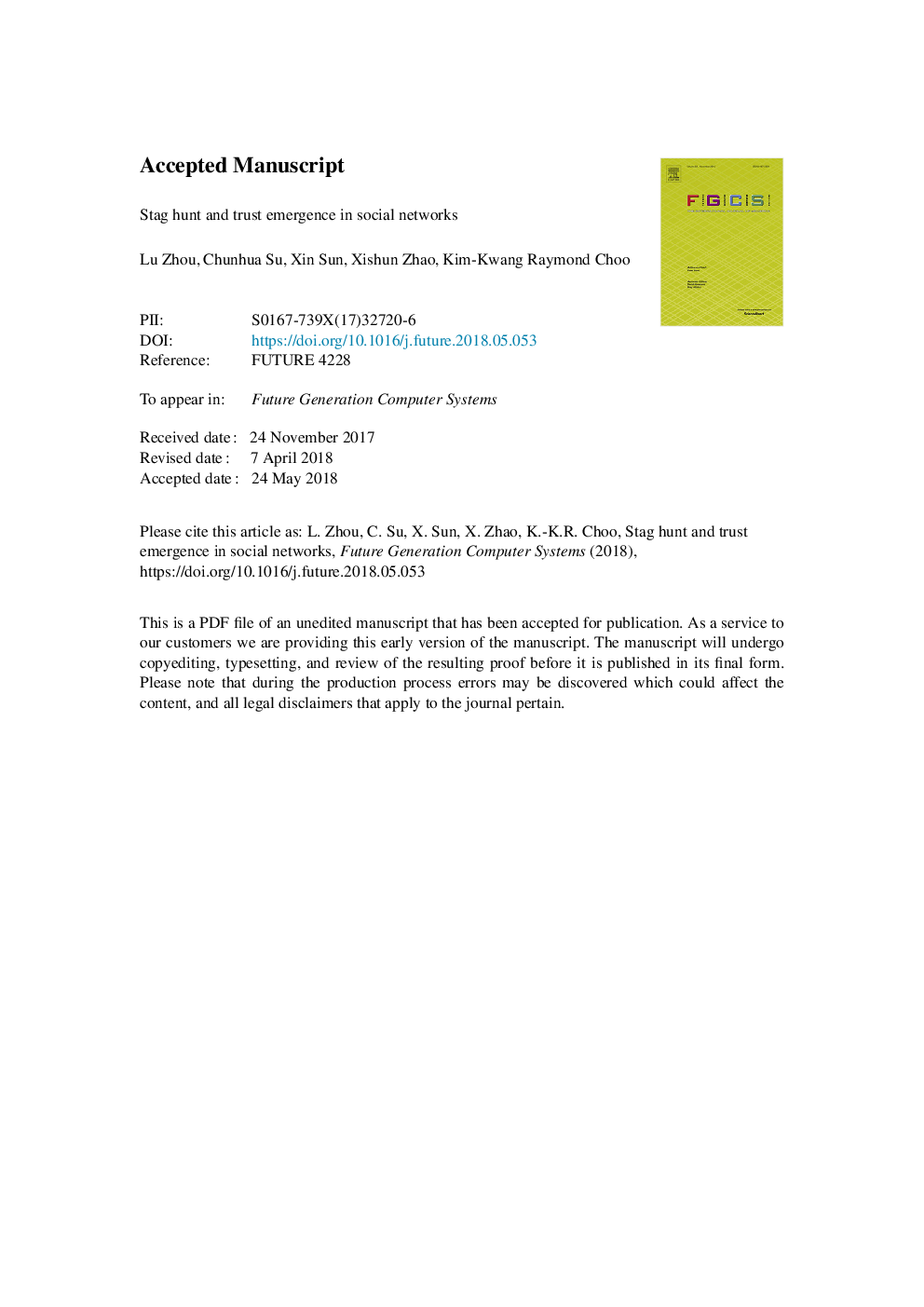| Article ID | Journal | Published Year | Pages | File Type |
|---|---|---|---|---|
| 6872837 | Future Generation Computer Systems | 2018 | 23 Pages |
Abstract
Trust plays an important role in interactions within complex social systems. In this paper, we use multi-agent learning to study trust emergence in social networks. In our setting, agents play an iterative game of Stag Hunt with their neighbors. An agent adopts the learning rule imitate-the-best to learn how to play the game. Trust emerges if all agents choose to hunt stag after repeated play of the Stag Hunt game. We study the probability of the emergence of trust among agents living in different social networks. Using experiments, we reveal critical points of trust emergence in lattice network, ring network and small world model. The probability of trust emergence is relatively low if the quotient of the value of trust and the basic utility is smaller than the critical point. The probability, however, grows quickly when the quotient is larger than the critical point. In scale-free networks, there is no such critical point. Our findings also demonstrate that on scale-free networks, trust emerges only if the value of trust is several times larger than the basic utility.
Keywords
Related Topics
Physical Sciences and Engineering
Computer Science
Computational Theory and Mathematics
Authors
Lu Zhou, Chunhua Su, Xin Sun, Xishun Zhao, Kim-Kwang Raymond Choo,
